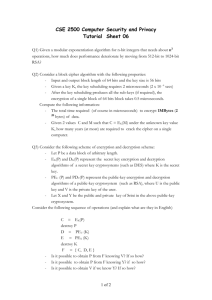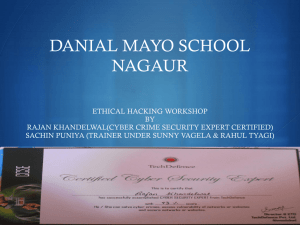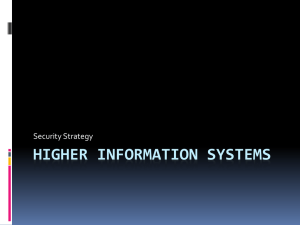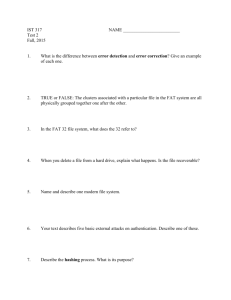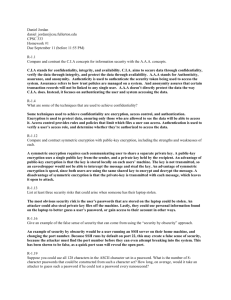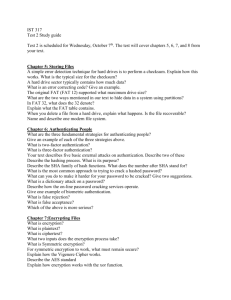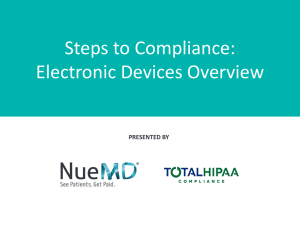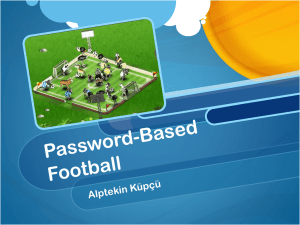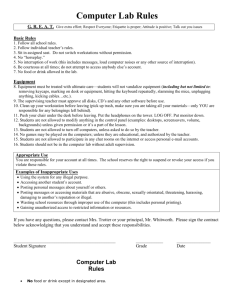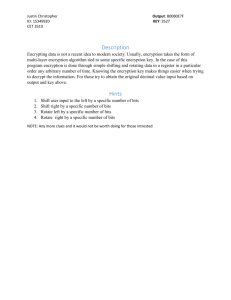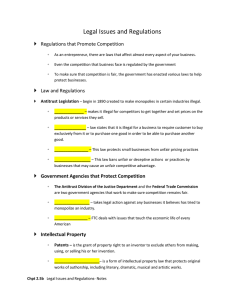Summary notes – Info Sys – Security Law Environment – Higher
advertisement
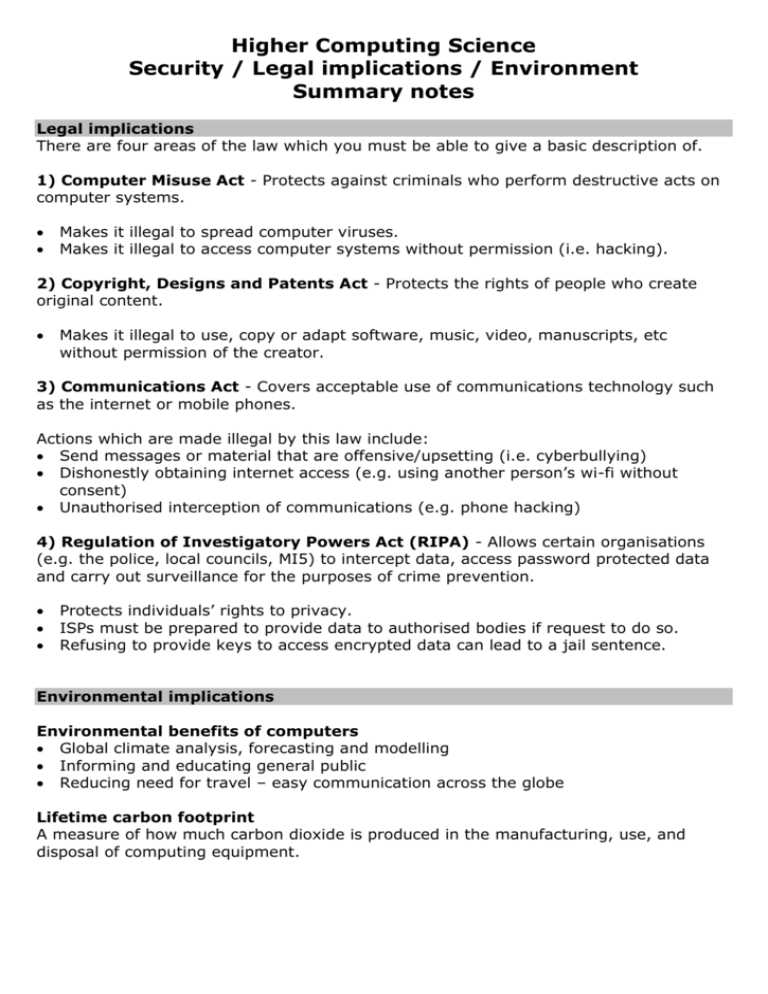
Higher Computing Science Security / Legal implications / Environment Summary notes Legal implications There are four areas of the law which you must be able to give a basic description of. 1) Computer Misuse Act - Protects against criminals who perform destructive acts on computer systems. Makes it illegal to spread computer viruses. Makes it illegal to access computer systems without permission (i.e. hacking). 2) Copyright, Designs and Patents Act - Protects the rights of people who create original content. Makes it illegal to use, copy or adapt software, music, video, manuscripts, etc without permission of the creator. 3) Communications Act - Covers acceptable use of communications technology such as the internet or mobile phones. Actions which are made illegal by this law include: Send messages or material that are offensive/upsetting (i.e. cyberbullying) Dishonestly obtaining internet access (e.g. using another person’s wi-fi without consent) Unauthorised interception of communications (e.g. phone hacking) 4) Regulation of Investigatory Powers Act (RIPA) - Allows certain organisations (e.g. the police, local councils, MI5) to intercept data, access password protected data and carry out surveillance for the purposes of crime prevention. Protects individuals’ rights to privacy. ISPs must be prepared to provide data to authorised bodies if request to do so. Refusing to provide keys to access encrypted data can lead to a jail sentence. Environmental implications Environmental benefits of computers Global climate analysis, forecasting and modelling Informing and educating general public Reducing need for travel – easy communication across the globe Lifetime carbon footprint A measure of how much carbon dioxide is produced in the manufacturing, use, and disposal of computing equipment. Security risks Some of the risks associated with using computers and the WWW include: Spyware Phishing Keylogging Online fraud Identity theft Denial of Service (DOS) attacks Programs which tries to gather personal information from your computer. A fraudulent attempt to get personal information or passwords by pretending to be a genuine organisation. Lookout for poor grammar, suspicious attachments, links which ask for passwords, etc. A program which monitors every keypress, often used to steal passwords, credit card numbers, etc. Using the internet to unlawfully obtain money or property. Stealing personal details and pretending to be somebody else. Flooding a web server with a large number of requests so the webpages stored on it become unavailable to legitimate users. Security precautions There are a variety of procedures which can be put in place to reduce the risk of security breaches. Encryption Digital signatures Encoding data before it is stored or transmitted. The data must then be decrypted using the correct key before it can be understood. If data is intercepted it cannot be easily deciphered. Uses encryption methods as a way of authenticating data so that the recipient can be sure it has not been altered or tampered with. An electronic document used to prove that the person sending data is who they claim to be. Digital certificate Server-side validation of online form data Biometrics in industry A padlock icon in the address bar of your browser shows that the website has a digital certificate so you can be sure that you’re dealing with a genuine website. Online forms allow you to enter data into a website, such as a username and password. Server-side validation means that your login details are stored on the web server. The username and password you input will be compared to the details held on the server and, if they match, the server will send your account data to your computer. Biometrics (using unique characteristics as identification, such as fingerprint, iris or voice) is increasingly popular in industry. E.g. banks using fingerprint recognition, facial recognition at airports, etc. Economic impact Competitive advantage Global marketplace Business costs Maintainability Scalability Dynamic websites and social networking can give businesses an advantage over their competitors. Businesses now have access to, and are able to cater for, customers across the globe. Costs involved in setting up a business have changed – no need for expensive premises, it is cheap to set up an e-commerce site. Quickly updatable, database-driven websites, make it easy to upgrade prices, put on special offers or change branding to suit business needs. It can be easy for businesses to adjust according to a changing customer base, high street premises are not a requirement. Social impact Censorship and freedom of speech Privacy and encryption Global citizenship Online communities Anybody can make their views heard online but some governments may try to impose censorship on content which is acceptable elsewhere. Huge amounts of data about individuals are stored and shared readily, leading to concerns about invasion of privacy and the need for encryption by all data users. Online communities and a breaking down of international barriers has led to the idea of the global citizen, somebody who is aware of their responsibilities and impact upon the planet as a whole. Online communities allow people from anywhere in the world to interact and collaborate.
